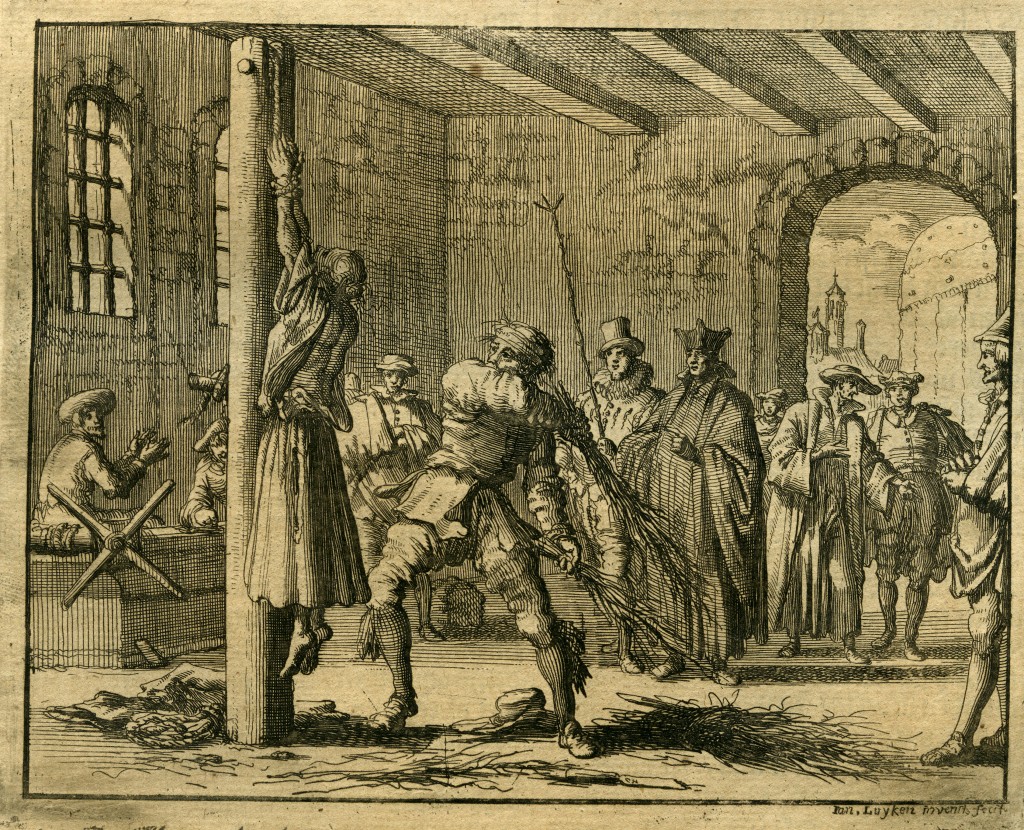On torture, can we handle the truth? We’d better start trying
By Carmen Fowler Laberge, December 17 at 3:13 PM
In the movie “A Few Good Men,” Col. Nathan Jessup (Jack Nicholson) barks at Lt. Daniel Kaffee (Tom Cruise):
“You want me on that wall, you need me on that wall. We use words like honor, code, loyalty. We use these words as the backbone of a life spent defending something. You use them as a punch line. I have neither the time nor the inclination to explain myself to a man who rises and sleeps under the blanket of the very freedom that I provide, and then questions the manner in which I provide it.”
On Sunday’s “Meet the Press,” former Vice President Dick Cheney channeled the spirit of Nicholson’s character. Host Chuck Todd mentioned how U.N. special envoy Ben Emmerson considers the CIA actions mentioned in the recent “torture report” to be worthy of criminal prosecution. Cheney’s response: “I have little respect for the United Nations or for this individual who doesn’t (have) a clue and had absolutely no responsibility for safeguarding this nation and going after the bastards that killed 3,000 Americans on 9/11.”
Then, Cheney added: “I’d do it again in a minute.”
In a world of endless double-speak, Cheney and Jessup have such clear conviction of the rightness of their actions. Of course, Jessup ended the movie in handcuffs, and some would argue the same should happen to those involved in “enhanced interrogation” procedures.
Indeed, everyone has an opinion about the report released last week by the Senate Select Committee on Intelligence. What is the evangelical response? Why are we hearing silence from some and a disparate cacophony from others? Certainly the mind of Christ is not divided on the issue, so why does the church not speak unequivocally with one voice on matters like torture?
First, there is no “official evangelical response” because we evangelicals have no central voice of human authority. Show me your 10 evangelical friends on Facebook who “like” torture and I’ll show you 10 who “unlike” it. OK, that sounds pretty stupid, but so is the automatic assumption that conservative Christians accept — and worse, advocate for — “enhanced interrogation” simply because it happened under a Republican administration.
We don’t. Or at least, a lot of us don’t.
Sure, some evangelicals may be virtual sycophants for a particular political party agenda. But most I know are working hard to live with a biblically informed convictional faith in a world that operates largely as if God does not exist. Therefore, I would contend that the recent events filling the headlines are apropos for preaching on Sunday. Even as we head into Christmas, a chorus of evangelical prophetic voices could speak about torture in gospel terms.
Every preacher is expected to talk about Christmas this Sunday. This is the week that the mystery is quite literally born. In the darkness of Rome’s oppression, God personally intervened in human history. Jesus was born to low-class parents who were a religious minority in a nation under a dictator’s occupation and oppression. The darkness did not flee from the earth when Jesus was born, nor when he was tortured and killed for sins he did not commit.
But then he rose from the dead. Surely that eradicated the darkness, right? No. But it did unleash the light in a way that can never be undone. Jesus did not promise “from this day forth it would all get progressively better.” He did not bring an end to the tyranny of evil in the hearts of humanity. What he offered was himself and through him, a life lived for the glory of God, in every circumstance.
So, what should evangelical pastors be saying about torture? Certainly, pastors should not parrot talking points issued by their preferred political party. Instead, Christians should remember Jesus, who the New Testament reminds us “endured from sinners such hostility against himself.” Is that a cop-out? A pietistic platitude to distract from the matter at hand? Not for a Christian.
Look, we believe in and follow one who was tortured. What’s more, the Bible reveals that by his suffering and death, all who believe in him have forgiveness of sin and eternal life.
We rejoice in our salvation; yet we sorrow knowing that he suffered in our place. We grieve the torture of the innocent one, the Christ.
But we also grieve over the torture that sinful humans inflict upon one another. War is hell. There is no perfect justice nor completely preventable act of terror. And torture — in its many forms and varieties and degrees — would not exist if the world were free from evil. That’s why the sinless savior died: to redeem a world broken by sin.
But that end has not yet arrived in its fullness. We await that day in what is called the meantime. It’s the time in between, but it’s aptly named.
In the mean time, we seek ways to protect the helpless from those who would kill them without cause. In the mean time, we want our security and we’d rather not have to think about the methods used to secure it. Therein lies the truth. Is it possible we can’t handle the truth, as Col. Jessup says in “A Few Good Men”?
For the Christian, that cannot be the final word, and ultimately, it won’t be. We will give an account of ourselves — including our anti-terrorism activities. And the God who sits on the throne in that final day of judgment will be someone who has firsthand knowledge of what torture is. He will ask: “Did you do unto that captive what you would want done unto you . in captivity?”
Carmen Fowler LaBerge is president and executive editor of the Presbyterian Lay Committee and a member of the board of directors of the National Association of Evangelicals.
http://www.washingtonpost.com/national/religion/on-torture-can-we-handle-the-truth-wed-better-start-trying-commentary/2014/12/17/23cbf922-8629-11e4-abcf-5a3d7b3b20b8_story.htm or http://wapo.st/1v0E190
Illustration of torture of teacher Ursula, Maastricht, 1570. http://mla.bethelks.edu/holdings/scans/martyrsmirror/

